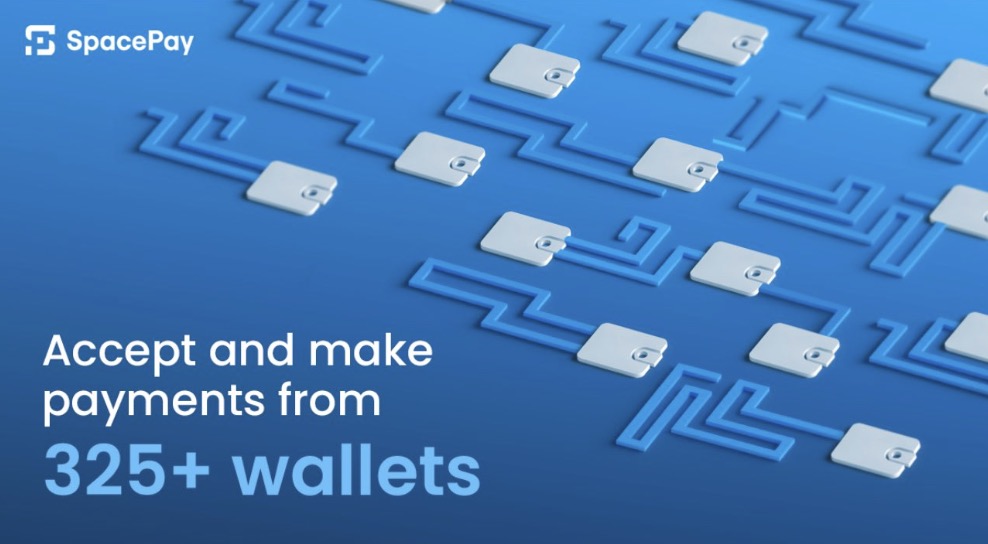You know how frustrating it is when you want to pay with crypto but the store doesn’t accept it? SpacePay is tackling this exact problem.
This London startup lets businesses accept crypto payments through their existing card readers and works with 325+ different wallets. The system instantly converts crypto to cash so merchants don’t worry about price swings.
They’ve pulled in over $1.1 million so far in presale, and their $SPY tokens are going for $0.003181 right now. Here’s why this matters more than you might think.
The Crypto Payment Problem Nobody Talks About
Walk into any coffee shop and try to pay with Bitcoin. Nine times out of ten, you’ll get a blank stare. It’s not that business owners hate crypto – they just can’t justify the hassle and cost.
Setting up crypto payments usually means buying new equipment that costs thousands. Then there’s the fear factor. What happens if Bitcoin drops 20% between when the customer pays and when the business checks their account? That’s a real loss that small businesses can’t afford.
SpacePay side steps both problems pretty cleverly. Merchants just update their software on existing terminals. No new hardware needed. When someone pays with crypto, the system immediately swaps it for regular currency. The business gets paid in dollars, not digital coins that might tank overnight.
Think about it – a customer spends $50 worth of Ethereum, and the merchant’s bank account shows $50. No waiting, no gambling on price movements.
Making Crypto Work for Regular People
Payment processors like Visa and Mastercard typically charge businesses 2-3% per transaction. SpacePay asks for just 0.5%. That’s real money back in merchants’ pockets, especially for businesses processing hundreds of transactions daily.
The system plays nice with major cryptocurrencies – Ethereum, Binance Coin, USDT, and others. Customers can use whatever wallet they prefer from a list of 325+ options. This flexibility removes the “which wallet should I use?” confusion that stops many people from trying crypto payments.
Security isn’t an afterthought either. SpacePay built their system with proper encryption and monitors transactions in real-time. Rather than putting all their eggs in one basket with a single server, they’ve spread things out across multiple networks so if one goes down, the others keep running.
Why This Presale Actually Makes Sense
Most crypto projects promise the moon and deliver nothing. SpacePay’s $SPY token does something different – it gives holders actual benefits today, not just hopes for tomorrow.
Token holders get to vote on platform changes. They receive monthly rewards for sticking around. New features roll out to them first. Plus, the company shares revenue with token holders. It creates a direct link between the platform’s success and token value.
The numbers add up too. SpacePay created 34 billion total tokens and set aside 20% for the public presale. The rest goes toward development, partnerships, and growing the ecosystem. It’s a sensible split that doesn’t leave founders hogging most of the supply.
What’s encouraging is seeing over $1.1 million flow into the presale already. People are putting real money behind this project, not just tire-kicking. The price goes up at each stage, so earlier participants get better deals.
The Business Reality Check
Here’s a stat that might surprise you: over 400 million people own cryptocurrency worldwide. Yet most businesses still don’t accept it. That’s a huge gap waiting to be filled.
Younger customers especially expect modern payment options. Walk into any trendy restaurant and you’ll see people paying with phone apps, contactless cards, and digital wallets. Adding crypto to that mix isn’t weird – it’s logical.
For businesses dealing with international customers, crypto payments could be a lifesaver. Traditional wire transfers are slow and expensive. Crypto moves fast and cheap, especially for cross-border transactions.
The Practical Side of Things
SpacePay isn’t just throwing around big ideas. They’ve actually built something that works. The team focuses on following regulations properly, which builds trust with both merchants and investors who’ve been burned by sketchy crypto projects.
They’re also transparent about their progress. Token holders get quarterly updates directly from the leadership team. No mysterious announcements or vague roadmaps – just straight talk about what’s working and what needs fixing.
This level of openness is refreshing in a space where many projects operate like black boxes until they either explode or disappear.
Getting Your Hands on $SPY Tokens
Anyone can join the presale by visiting SpacePay’s official website and connecting a crypto wallet like MetaMask. The platform accepts ETH, BNB, USDT, USDC, and several other cryptocurrencies. They even take bank cards for people who don’t own crypto yet.
With tokens currently priced at $0.003181, this stage won’t last forever as the price jumps up with each new phase.
JOIN THE SPACEPAY ($SPY) PRESALE NOW




